Food Nutrients
How to submit an article:
- Registered users can submit any published journal article that has a unique DOI (Digital Object Identifier) name or link to Research Hub.
- For example, you can paste the full DOI link:
https://doi.org/10.1109/5.771073or just the DOI name:10.1109/5.771073into the field above and click submit. - The person who is first to submit a valid article to Research Hub will forever be credited for it, and every article submission earns you +6 Research Points.
Sub-Topics:
Related Topics
Published research studies are articles that present the findings of original research that has undergone a peer-review process and has been made publicly available in scholarly journals, books or other media.

Recommendations for nutritional supplements for dry eye disease: current advances
2024 May 30 Frontiers in Pharmacology Cong Y, Zhang Y, Han Y, Wu Y, Wang D, Zhang B
Systematic Review Review Article Omega-3 Fatty Acids Dry EyeThe review reveals that nutritional supplements, particularly fish oils, vitamins, trace elements, and phytochemical extracts, show promising therapeutic potential for Dry Eye Disease management.

Effect of omega-3 supplements or diets on fertility in women: A meta-analysis
2024 Apr Heliyon Trop-Steinberg S, Gal M, Azar Y, Kilav-Levin R, Heifetz EM
Systematic Review Meta-Analysis IVF Female Fertility Omega-3 Fatty AcidsIncreased omega-3 intake significantly improves women's chances of pregnancy and fertilization rates.
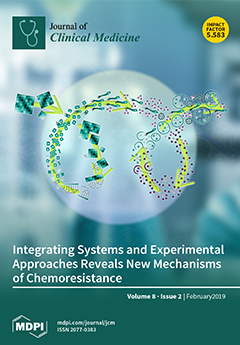
Efficacy of Omega-3 Intake in Managing Dry Eye Disease: A Systematic Review and Meta-Analysis of Randomized Controlled Trials
2023 Nov 10 Journal of Clinical Medicine Wang WX, Ko ML
Meta-Analysis Systematic Review Omega-3 Fatty Acids Eicosapentaenoic Acid Dry EyeOmega-3 fatty acid supplements can effectively alleviate symptoms of dry eye disease, especially when consumed in high doses for a long term and with high eicosapentaenoic acid levels.

Nutrition and its role in prevention and management of rheumatoid arthritis
2023 Jul Autoimmunity Reviews Nikiphorou E, Philippou E
Review Article Mediterranean Diet Sardine Omega-3 Fatty AcidsNutrition, particularly an anti-inflammatory Mediterranean diet supplemented with oily fish and omega-3 supplements, can potentially reduce inflammation and improve symptoms of rheumatoid arthritis.

Effect of Vitamin D Supplementation on Primary Dysmenorrhea: A Systematic Review and Meta-Analysis of Randomized Clinical Trials
2023 Jun 21 Nutrients Chen YC, Chiang YF, Lin YJ, Huang KC, Chen HY, Hamdy NM, et al.
Systematic Review Meta-Analysis Period Pain Food NutrientsVitamin D supplementation significantly reduces pain levels in people suffering from primary dysmenorrhea.
Research insights are moderated by the Research Hub team and offer an at-a-glance overview of interesting research findings.

2024 Frontiers in Pharmacology
The review reveals that nutritional supplements, particularly fish oils, vitamins, trace elements, and phytochemical extracts, show promising therapeutic potential for Dry Eye Disease management.
Systematic Review Dry Eye Omega-3 Fatty Acids
Recommendations for nutritional supplements for dry eye disease: current advances
Cong Y, Zhang Y, Han Y, Wu Y, Wang D, Zhang B

2024 Heliyon
Increased omega-3 intake significantly improves women's chances of pregnancy and fertilization rates.
Systematic Review Female Fertility IVF Omega-3 Fatty Acids
Effect of omega-3 supplements or diets on fertility in women: A meta-analysis
Trop-Steinberg S, Gal M, Azar Y, Kilav-Levin R, Heifetz EM

2023 Journal of Clinical Medicine
Omega-3 fatty acid supplements can effectively alleviate symptoms of dry eye disease, especially when consumed in high doses for a long term and with high eicosapentaenoic acid levels.
Meta-Analysis Dry Eye Eicosapentaenoic Acid Omega-3 Fatty Acids
Efficacy of Omega-3 Intake in Managing Dry Eye Disease: A Systematic Review and Meta-Analysis of Randomized Controlled Trials
Wang WX, Ko ML

2023 Autoimmunity Reviews
Nutrition, particularly an anti-inflammatory Mediterranean diet supplemented with oily fish and omega-3 supplements, can potentially reduce inflammation and improve symptoms of rheumatoid arthritis.
Review Article Mediterranean Diet Omega-3 Fatty Acids Sardine
Nutrition and its role in prevention and management of rheumatoid arthritis
Nikiphorou E, Philippou E

2023 Nutrients
Vitamin D supplementation significantly reduces pain levels in people suffering from primary dysmenorrhea.
Systematic Review Period Pain
Effect of Vitamin D Supplementation on Primary Dysmenorrhea: A Systematic Review and Meta-Analysis of Randomized Clinical Trials
Chen YC, Chiang YF, Lin YJ, Huang KC, Chen HY, Hamdy NM, et al.
Review Articles
Review articles summarise and critically evaluate the current state of research on a specific topic or field by synthesising multiple primary research studies.

Recommendations for nutritional supplements for dry eye disease: current advances
2024 May 30 Frontiers in Pharmacology Cong Y, Zhang Y, Han Y, Wu Y, Wang D, Zhang B
Systematic Review Review Article Omega-3 Fatty Acids Dry EyeThe review reveals that nutritional supplements, particularly fish oils, vitamins, trace elements, and phytochemical extracts, show promising therapeutic potential for Dry Eye Disease management.

Effect of omega-3 supplements or diets on fertility in women: A meta-analysis
2024 Apr Heliyon Trop-Steinberg S, Gal M, Azar Y, Kilav-Levin R, Heifetz EM
Systematic Review Meta-Analysis IVF Female Fertility Omega-3 Fatty AcidsIncreased omega-3 intake significantly improves women's chances of pregnancy and fertilization rates.

Efficacy of Omega-3 Intake in Managing Dry Eye Disease: A Systematic Review and Meta-Analysis of Randomized Controlled Trials
2023 Nov 10 Journal of Clinical Medicine Wang WX, Ko ML
Meta-Analysis Systematic Review Omega-3 Fatty Acids Eicosapentaenoic Acid Dry EyeOmega-3 fatty acid supplements can effectively alleviate symptoms of dry eye disease, especially when consumed in high doses for a long term and with high eicosapentaenoic acid levels.

Nutrition and its role in prevention and management of rheumatoid arthritis
2023 Jul Autoimmunity Reviews Nikiphorou E, Philippou E
Review Article Mediterranean Diet Sardine Omega-3 Fatty AcidsNutrition, particularly an anti-inflammatory Mediterranean diet supplemented with oily fish and omega-3 supplements, can potentially reduce inflammation and improve symptoms of rheumatoid arthritis.

Effect of Vitamin D Supplementation on Primary Dysmenorrhea: A Systematic Review and Meta-Analysis of Randomized Clinical Trials
2023 Jun 21 Nutrients Chen YC, Chiang YF, Lin YJ, Huang KC, Chen HY, Hamdy NM, et al.
Systematic Review Meta-Analysis Period Pain Food NutrientsVitamin D supplementation significantly reduces pain levels in people suffering from primary dysmenorrhea.
Clinical Trials
Clinical trials are research studies that involve people and are conducted to evaluate the safety and efficacy of new treatments or interventions, such as drugs, medical devices, or behavioural therapies.

Manufacture and Evaluation of Novel Chocolate for Girls' Dysmenorrhea
2023 Mar 01 Journal of Food and Dairy Sciences Shalaby, A, Moawad O, Mostafa M
Randomised Controlled Trial Ginger Chinese Cinnamon Dark Chocolate Iron Field Mint CinnamonCinnamon, ginger, and mint enhanced chocolates effectively reduce menstrual pain and improve blood iron levels without increasing body weight or negatively affecting cholesterol.

Effectiveness of a Novel ω-3 Krill Oil Agent in Patients With Severe Hypertriglyceridemia
2022 Jan 06 JAMA Network Open Mozaffarian D, Maki KC, Bays HE, Aguilera F, Gould G, Hegele RA, et al.
his study found that ω-3 –PL/FFA, a novel krill oil–derived ω-3 formulation, reduced TG levels and was safe and well tolerated in patients with severe hypertriglyceridemia.
Randomised Controlled Trial Triglyceride Omega-3 Fatty Acids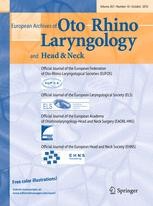
Magnesium alginate versus proton pump inhibitors for the treatment of laryngopharyngeal reflux: a non-inferiority randomized controlled trial
2022 Jan 15 European Archives of Oto-Rhino-Laryngology Pizzorni N, Ambrogi F, Eplite A, Rama S, Robotti C, Lechien J, et al.
Randomised Controlled Trial Proton Pump Inhibitor Alginate Magnesium GERDAlginate, as a treatment option for laryngopharyngeal reflux, is equally effective as proton pump inhibitors and may serve as a potential alternative treatment.
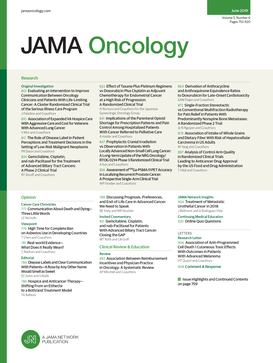
The Efficacy and Safety of Vitamin C for Iron Supplementation in Adult Patients With Iron Deficiency Anemia
2020 Nov 02 JAMA Oncology Li N, Zhao G, Wu W, Zhang M, Liu W, Chen Q, et al.
Among patients with IDA, oral iron supplements alone were equivalent to oral iron supplements plus vitamin C in improving hemoglobin recovery and iron absorption. These findings suggest that on-demand vitamin C supplements are not essential to take along with oral iron supplements for patients with IDA.
Randomised Controlled Trial Vitamin C Anaemia Iron Deficiency Anaemia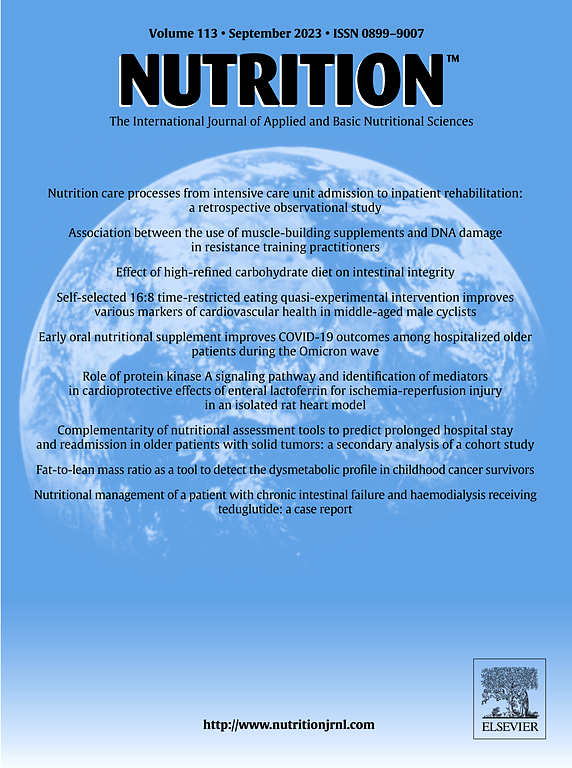
Time to treatment response of a magnesium- and sulphate-rich natural mineral water in functional constipation
2019 Sep Nutrition Dupont C, Constant F, Imbert A, Hébert G, Zourabichvili O, Kapel N
Clinical Study Randomised Controlled Trial Sulphate Mineral Water Magnesium ConstipationHépar mineral water, rich in sulphates and magnesium, effectively treats functional constipation, showing significant results within 7 days.
Study Protocols
Published study protocols are detailed plans that outline the objectives, methodology, statistical analyses, and organisation of a research study that have been made publicly available for others to review and use as a reference.
Presentation Slides

Systematic Review
The review reveals that nutritional supplements, particularly fish oils, vitamins, trace elements, and phytochemical extracts, show promising therapeutic potential for Dry Eye Disease management.
Cong Y, Zhang Y, Han Y, Wu Y, Wang D, Zhang B

Systematic Review
Increased omega-3 intake significantly improves women's chances of pregnancy and fertilization rates.
Trop-Steinberg S, Gal M, Azar Y, Kilav-Levin R, Heifetz EM

Meta-Analysis
Omega-3 fatty acid supplements can effectively alleviate symptoms of dry eye disease, especially when consumed in high doses for a long term and with high eicosapentaenoic acid levels.
Wang WX, Ko ML

Review Article
Nutrition, particularly an anti-inflammatory Mediterranean diet supplemented with oily fish and omega-3 supplements, can potentially reduce inflammation and improve symptoms of rheumatoid arthritis.
Nikiphorou E, Philippou E

Systematic Review
Vitamin D supplementation significantly reduces pain levels in people suffering from primary dysmenorrhea.
Chen YC, Chiang YF, Lin YJ, Huang KC, Chen HY, Hamdy NM, Huang TC, Chang HY, Shieh TM, Huang YJ, Hsia SM

Randomised Controlled Trial
Cinnamon, ginger, and mint enhanced chocolates effectively reduce menstrual pain and improve blood iron levels without increasing body weight or negatively affecting cholesterol.
Shalaby, A, Moawad O, Mostafa M

Review Article
Carrot and carotene consumption could diminish the risk of a wide range of negative health consequences, including multiple types of cancer.
Yi X, Li J, Liao D, Peng G, Zheng X, Xu H, Zhang T, Ai J
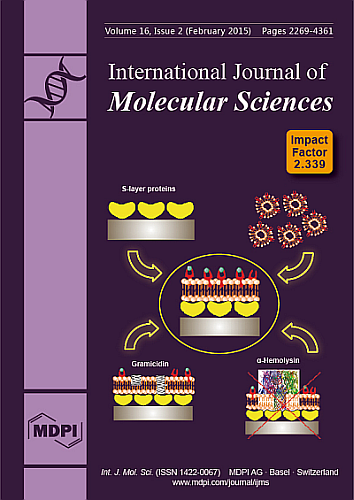
Review Article
Magnesium, essential for harmonising nerve signals and preserving the blood-brain barrier, may be linked to neurodegenerative disorders when its balance is disrupted.
Maier JAM, Locatelli L, Fedele G, Cazzaniga A, Mazur A

Review Article
Carrot's bioactive compounds can regulate immune response, reduce oxidative stress, and prevent damaging oxidative destruction, making it a potential preventive tool for various diseases.
Anjani G, Ayustaningwarno F, Eviana R
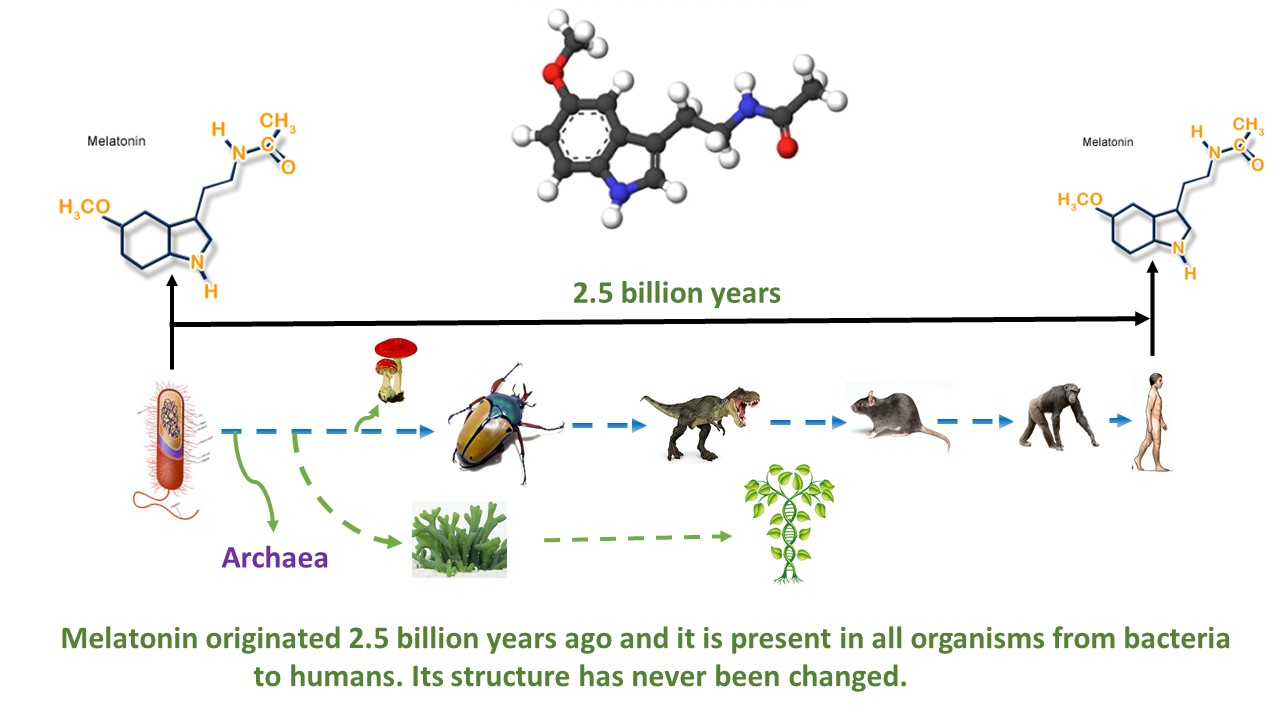
Review Article
Recent revelations of L-DOPA, dopamine, 5-hydroxytryptophan, tryptamine, serotonin, N-acetylserotonin, melatonin, 2-hydroxymelatonin, AFMK, AMK, and vitamin D3 derivatives in honey expand its health benefits.
Kim TK, Fabisiak A, Brzeminski P, Reiter RJ, Slominski AT
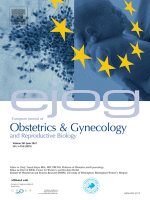
Systematic Review
Increased intake of omega-3 can enhance the quality of oocyte and embryo, thereby potentially improving the success rate of assisted reproductive techniques.
Abodi M, De Cosmi V, Parazzini F, Agostoni C

Cohort Study
Moderate consumption of carrots is associated with a lower incidence of colorectal cancer, implying a potential cancer prevention effect in a certain dose-range.
Jiang Z, Chen H, Li M, Wang W, Fan C, Long F

Cohort Study
Moderate consumption of fish, particularly oily fish, may decrease rheumatoid arthritis risk, potentially countering the increased risk induced by smoking.
Nguyen Y, Salliot C, Mariette X, Boutron-Ruault MC, Seror R

Cohort Study
Self-reported use of omega-3 supplements is associated with a higher probability of natural conception in women aged 30-44 without a history of infertility.
Stanhiser J, Jukic AMZ, McConnaughey DR, Steiner AZ
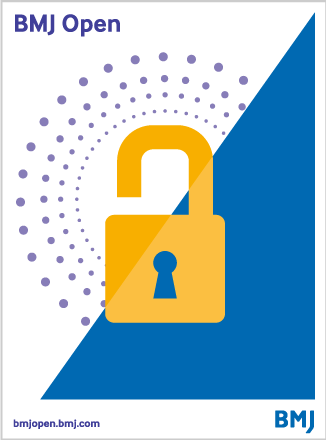
Cohort Study
Vitamin D and Omega 3 fatty acids supplementation appears to reduce the risk of autoimmune diseases.
Hahn J, Cook NR, Alexander EK, Friedman S, Walter J, Bubes V, Kotler G, Lee IM, Manson JAE, Costenbader KH

Randomised Controlled Trial
Alginate, as a treatment option for laryngopharyngeal reflux, is equally effective as proton pump inhibitors and may serve as a potential alternative treatment.
Pizzorni N, Ambrogi F, Eplite A, Rama S, Robotti C, Lechien J, Schindler A

Cohort Study
Increased plasma omega-3 levels, which are associated with genetically higher intake of omega-3, contribute to a higher risk of rheumatoid arthritis among people of European ancestry.
Zhu G, Zhou S, Xu Y, Gao R, Li H, Zhai B, Liu X, He Y, Wang X, Han G, Su W, Wang R
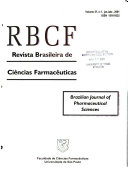
Review Article
High doses of vitamin C, vitamin D supplementation and natural honey can potentially decrease fatalities and support the management of COVID-19.
Rabby MII, Hossain F, Islam MA, Islam AKMS, Akhi IJ, Akter F

Clinical Study
Consumption of pumpkin seeds enhances the nutritional status and improves the attention deficit of deaf female children exhibiting ADHD symptoms.
Ataya H
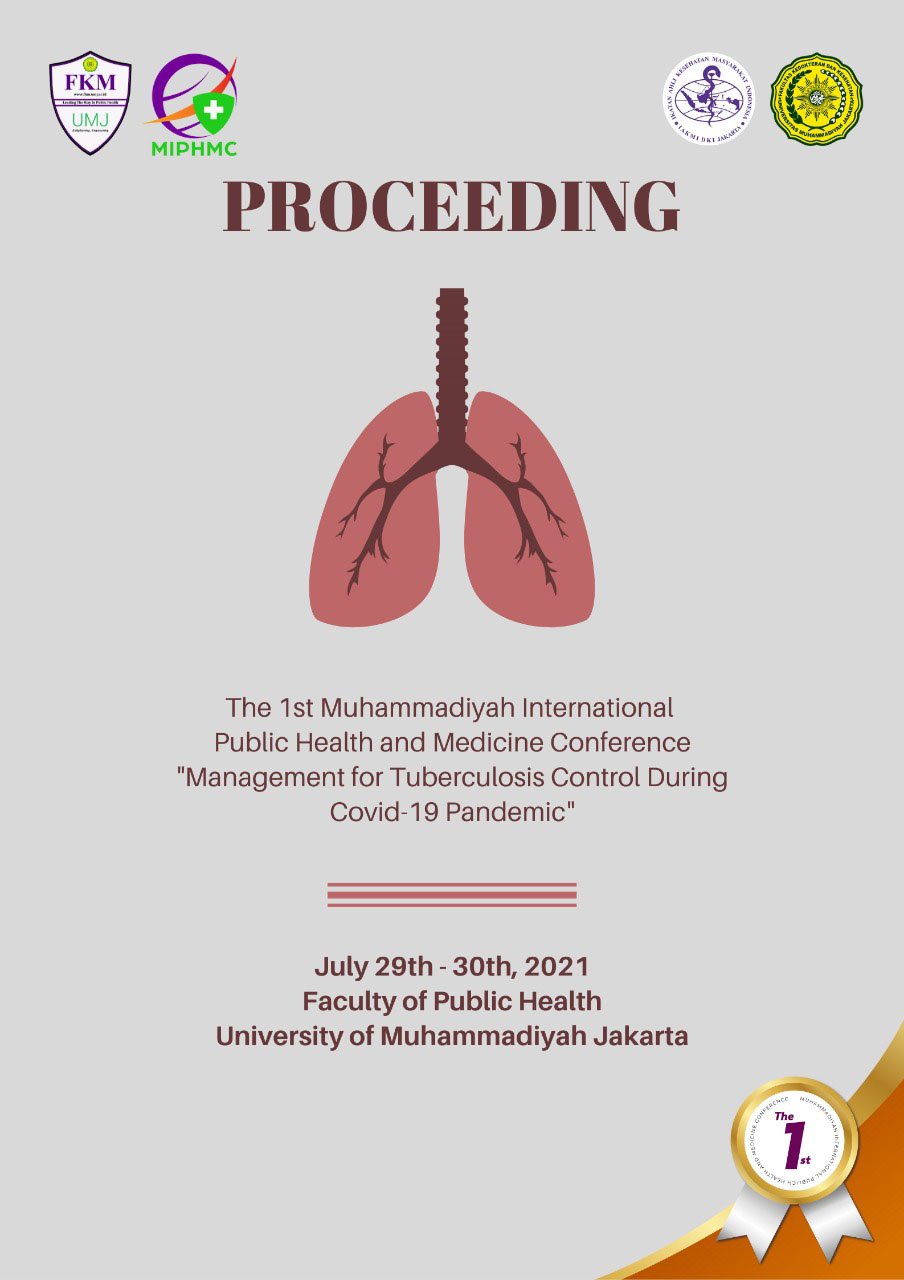
Cohort Study
Consumption of sardines can effectively prevent type 2 diabetes mellitus and hypertension, particularly in senior citizens, due to their high omega 3, EPA, and DHA content.
Nurdiana Febriyanti V

Cohort Study
Sardines are highly proven to be able to effectively prevent type 2 diabetes, prevent hypertension, and lower blood pressure, especially for senior citizens.
Nurdiana Febriyanti V
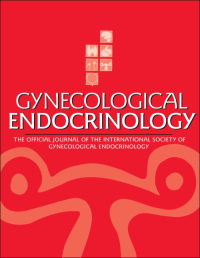
Clinical Study
Simultaneous administration of vitamin D and Epigallocatechin gallate significantly reduces the size of uterine fibroids in premenopausal women, and decreases menstrual flow duration.
Grandi G, Del Savio MC, Melotti C, Feliciello L, Facchinetti F
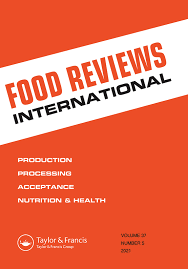
Review Article
Oily fish, particularly sardines, due to their high omega-3 and taurine content, may play a protective role in slowing the progression towards type 2 diabetes.
Díaz-Rizzolo DA, Miro A, Gomis R
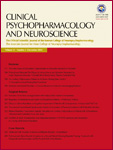
Review Article
Omega-3 polyunsaturated fatty acids supplementation during the prenatal and perinatal period could have a protective effect on neurodevelopmental disorders including ADHD, ASD, and MDD in youth.
Chang JPC, Su KP

Review Article
Flavonoids from jujube have been found to stimulate the expression of erythropoietin (EPO), a hormone stimulating blood production.
Chen J, Tsim KWK

Review Article
Recent studies have indicated that jujube possesses a wide range of pharmacological activities in nervous system, cardiovascular system, as well as anti-oxidation and anti-cancer properties.
Chen J, Tsim KWK

Clinical Study
Magnesium-rich mineral water effectively treats and prevents constipation in children, leading to regular, painless bowel movements.
Kulikov AG, Zakharova IN, Tvorogova TM, Stepurina LL, Elezova LI

Review Article
Magnesium sulfate-rich natural mineral waters are effective and safe as a natural treatment for functional constipation.
Dupont C, Hébert G

Network Pharmacology
Seasonal variations influence the nutrient composition of European sardines, with lipid levels peaking from July to September and amino acid content highest during winter.
Šimat V, Hamed I, Petričević S, Bogdanović T
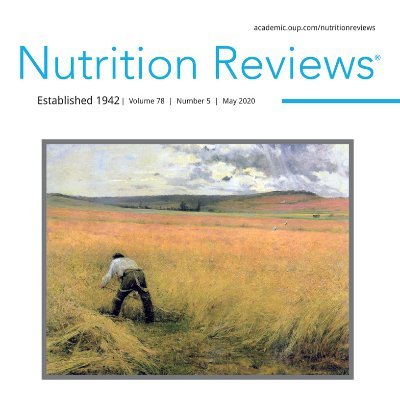
Systematic Review
High doses of omega-3 fatty acids, Vitamin D supplementation, and dietary sodium restriction showed significant improvement in reducing rheumatoid arthritis symptoms.
Philippou E, Petersson SD, Rodomar C, Nikiphorou E

Review Article
Black pepper, particularly the piperine it contains, enhances the absorption of iron, potentially improving athletic performance in endurance sports.
Fernández-Lázaro D, Mielgo-Ayuso J, Córdova Martínez A, Seco-Calvo J

Experimental Study
Honey contains 20(S)-Hydroxyvitamin D3 (20(OH)D3) and its derivatives, including 20(OH)-7DHC, 25(OH)D3, and 1,25(OH)2D3, indicating their production in bees and suggesting potential health implications.
Kim TK, Atigadda V, Brzeminski P, Fabisiak A, Tang EKY, Tuckey RC, Slominski AT

Experimental Study
We determined the concentration of 20(OH)D3 in honey to be 0.26 µg/g, corresponding to approximately 10 IU/g.
Kim TK, Atigadda V, Brzeminski P, Fabisiak A, Tang EKY, Tuckey RC, Slominski AT

Review Article
Omega 3 fatty acids can counter muscle lipotoxicity and prevent comorbidities in patients with rheumatoid arthritis, supporting muscle health and reducing cardiometabolic disease risk.
Lanchais K, Capel F, Tournadre A

Clinical Study
Hépar mineral water, rich in sulphates and magnesium, effectively treats functional constipation, showing significant results within 7 days.
Dupont C, Constant F, Imbert A, Hébert G, Zourabichvili O, Kapel N
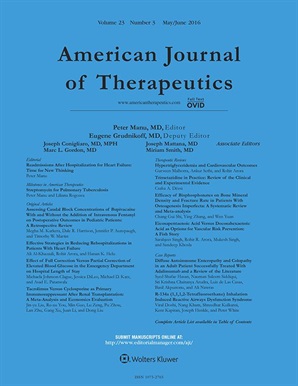
Review Article
Mg is essential in the metabolism of vitamin D, and taking large doses of vitamin D can induce severe depletion of Mg. Adequate magnesium supplementation should be considered as an important aspect of vitamin D therapy.
Reddy P, Edwards LR

Experimental Study
Danggui Buxue Tang (DBT) supplement helps reduce running times and control exercise-induced hepcidin levels, boosting iron levels and speeding up iron balance during recovery.
Chang CW, Chen CY, Yen CC, Wu YT, Hsu MC

Randomised Controlled Trial
Consuming two SunGold kiwifruits daily over 12 weeks improved vitamin C status, reduced blood pressure, waist measurements and altered faecal microbiota composition in prediabetic individuals.
Wilson R, Willis J, Gearry R, Hughes A, Lawley B, Skidmore P, Frampton C, Fleming E, Anderson A, Jones L, Tannock G, Carr A
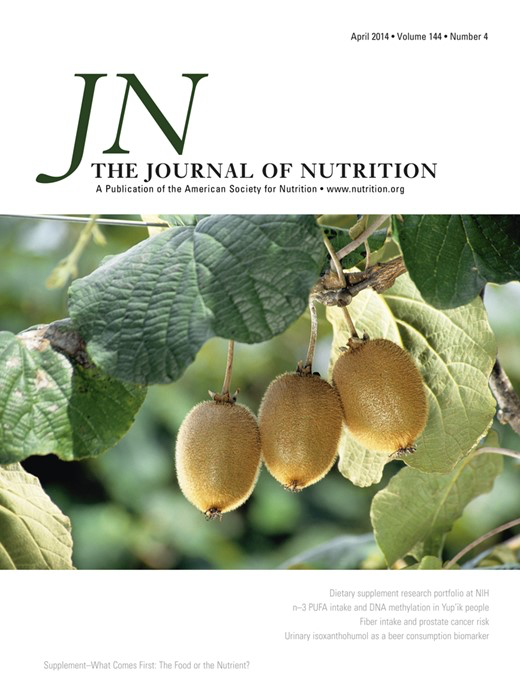
Randomised Controlled Trial
Dietary omega-3 intake shows promise in lowering systolic blood pressure.
Minihane AM, Armah CK, Miles EA, Madden JM, Clark AB, Caslake MJ, Packard CJ, Kofler BM, Lietz G, Curtis PJ, Mathers JC, Williams CM, Calder PC
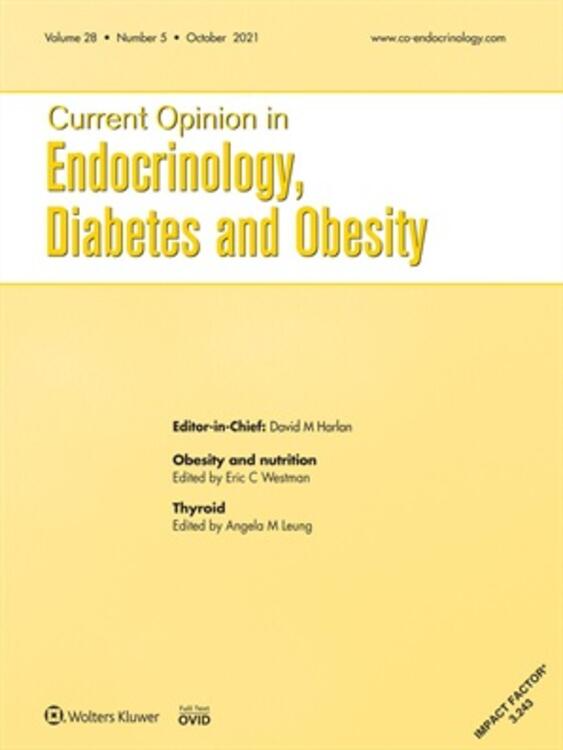
Review Article
Maintenance of sufficient vitamin D status may be important in preventing anemia, particularly in diseases characterized by inflammation.
Smith EM, Tangpricha V
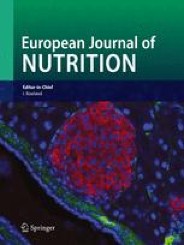
Randomised Controlled Trial
Drinking natural mineral water rich in magnesium sulphate and sodium sulphate daily improves bowel movement frequency and stool consistency in people with functional constipation.
Bothe G, Coh A, Auinger A
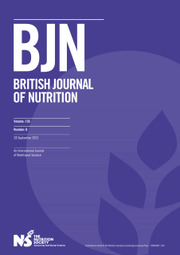
Cohort Study
High intake of magnesium from foods is linked to a significant decrease in the odds of developing reflux oesophagitis and Barrett's oesophagus.
Dai Q, Cantwell MM, Murray LJ, Zheng W, Anderson LA, Coleman HG

Review Article
Serotonin function, influenced by vitamin D and omega-3 fatty acids, plays a critical role in neuropsychiatric disorders and certain behavioral functions.
Patrick RP, Ames BN
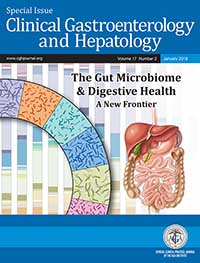
Randomised Controlled Trial
Drinking 1 liter of Hépar, a magnesium sulfate-rich mineral water, daily reduces constipation and hard or lumpy stools more effectively than low-mineral water in women.
Dupont C, Campagne A, Constant F
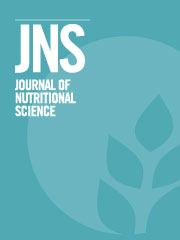
Clinical Study
Consuming two kiwifruits daily can improve overall mood, particularly for individuals starting with moderate mood disturbance.
Carr AC, Bozonet SM, Pullar JM, Vissers MCM

Randomised Controlled Trial
Drinking mineral water, especially those high in magnesium, helps lower blood pressure among individuals with borderline hypertension and low calcium or magnesium excretion.
Rylander R, Arnaud MJ
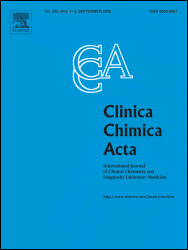
Clinical Study
Migraine patients exhibit lower intracellular magnesium levels, which can be increased by consuming magnesium-rich mineral water, demonstrating its bioavailability.
Thomas J, Millot JM, Sebille S, Delabroise AM, Thomas E, Manfait M, Arnaud MJ
Executive Summary
Write an executive summary in the form of a blog article on the topic of "Research into Chinese medicine treatment for Food Nutrients" summarising the research below and using language that can be easily understood by patients and avoiding medical jargon using a professional and caring tone of voice.
Write an executive summary in the form of a blog article on the topic of "Researched Chinese medicine treatments for Food Nutrients" summarising the research below in an objective and easy to understand way, and using language that can be easily understood by patients. Group the article into Chinese medicine treatments first, followed by nutrition and other treatments. Avoid using medical jargon and use a professional and caring tone of voice.
Write me a concise but easy to understand executive summary on the topic of "Chinese medicine treatments for Food Nutrients" based on the following research that I will give you. Your summary should be 2 paragraphs long in Australian English spelling and include references to the studies.
A Systematic Review published in 2024 in the journal Frontiers in Pharmacology found that The review reveals that nutritional supplements, particularly fish oils, vitamins, trace elements, and phytochemical extracts, show promising therapeutic potential for Dry Eye Disease management. The methodology used in the research paper mainly focuses on evaluating different oral nutritional supplements with varied compositions and dosages, in order to assess their impact on Dry Eye Disease symptoms. These supplements include key components like fish oils, vitamins, trace elements, and extracts from plants, recognized for their potential nutritional value. Emphasizing the role of nutrition in combating ocular surface diseases, the research also emphasizes the imbalance caused by deficiencies in polyunsaturated fatty acids and vitamin insufficiencies, which can lead to ocular issues such as inflammation and oxidative stress. The results discussion outlines considerable benefits of using these supplements, not only for managing Dry Eye Disease symptoms but also potentially for overall ocular health. It was observed that nutrients in these supplements hold promising therapeutic qualities, presenting new perspectives for supplement combinations in Dry Eye Disease treatment. Beyond the well-known nutrients, it was suggested that exploring novel nutrients could help establish even more effective management strategies for Dry Eye Disease.
A Systematic Review published in 2024 in the journal Heliyon found that Increased omega-3 intake significantly improves women's chances of pregnancy and fertilization rates. The methodology involved retrieving articles from databases like PubMed, Clinical Trials, CINAHL/EBSCO, Medline Complete, and Cochrane Library, published up to April 2021 using keywords related to omega-3, fertilization, and pregnancy. The selection criteria included studies that reported female fertility occurring naturally or intracytoplasmic sperm injection techniques concurrent with omega-3 intake, excluding retrospective studies, studies featuring postmenopausal women, or those with unevenly matched research groups. A meta-analysis was conducted using the extracted odds ratios of clinical pregnancies and fertilization rates from each study. The results, drawn from six fertility treatment-related trials with 1789 women, four trials with 2607 women who conceived naturally, and three further trials involving 1725 oocytes for fertility rates, consistently show the beneficial effects of omega-3. These findings, however, exhibited a high degree of heterogeneity, suggesting variable factors across the studies might have influenced the outcomes.
A Meta-Analysis published in 2023 in the journal Journal of Clinical Medicine found that Omega-3 fatty acid supplements can effectively alleviate symptoms of dry eye disease, especially when consumed in high doses for a long term and with high eicosapentaenoic acid levels. The methodology of this study involved an intensive review of data from multiple reliable sources like PubMed, Embase, and others covering the timespan from 2013 to 2023. The focus was on randomized clinical trials that studied the impact of omega-3 fatty acids on patients with dry eye disease and provided accessible pre- and post-intervention data. Studies with overlapping participants were excluded, as were studies without omega-3 supplementation or not featuring a placebo control or quantitative assessments. Independent reviewers extracted data pertaining to dry eye symptom scores and other related metrics. The results showed that patients who were administered omega-3 treatment demonstrated considerable improvement in symptoms of dry eye disease compared to those on a placebo treatment. The meta-regression analysis deduced positive correlations between the daily dose of omega-3, duration of omega-3 intake, and percentage of eicosapentaenoic acid, with a reduction in dry eye symptom scores. Similar trends were observed with other dry eye related metrics. These findings provide substantial evidence on the beneficial effect of omega-3 fatty acid supplements in managing dry eye disease. However, due to the diversity in patient characteristics and the heterogeneity in study results, care should be taken in widely applying these findings.
A Review Article published in 2023 in the journal Autoimmunity Reviews found that Nutrition, particularly an anti-inflammatory Mediterranean diet supplemented with oily fish and omega-3 supplements, can potentially reduce inflammation and improve symptoms of rheumatoid arthritis. The review examines evidence indicating a possible connection between nutrition and the risk and management of rheumatoid arthritis, an autoimmune disease having an immune-inflammatory response. The impact of different food types was considered, including pro-inflammatory and anti-inflammatory foods. Specifically, the research highlights the effectiveness of a Mediterranean diet, rich in fish and supplemented with omega-3 polyunsaturated fatty acids, in reducing inflammation and oxidation. Other factors such as herbs and spices, beverages, vitamin D, and probiotics were also taken into account. The research emphasizes the direct and indirect role of nutrition through the management of co-morbidity. The disease activity was observed to improve with dietary changes, particularly a propensity to reduce inflammation, oxidation, and beneficial effects on gut microbiota. An anti-inflammatory Mediterranean diet, supplemented with consumption of oily fish at least twice a week, and daily intake of omega-3 polyunsaturated fatty acid supplements of 2 g, has been recommended. The study also highlights the importance of rheumatologists working closely with registered dietitians to support patients in managing a well-balanced diet according to their individual needs.
A Systematic Review published in 2023 in the journal Nutrients found that Vitamin D supplementation significantly reduces pain levels in people suffering from primary dysmenorrhea. In the methodology of this study, a systematic database search was conducted for randomized controlled trials assessing the effects of oral vitamin D supplementation on relieving the symptoms of primary dysmenorrhea. The trials included comparisons of vitamin D treatment with placebo or standard care. Pain levels due to dysmenorrhea were gauged using a visual analogue or numerical rating scale. Analyses were conducted using a standardized mean difference in a meta-analysis. The results indicated that pain levels were considerably lower in participants who took vitamin D compared to the placebo, showcasing vitamin D's effectiveness in managing dysmenorhea-related pain. Notably, these relief effects were recorded regardless of the vitamin D administration duration (more or less than 70 days) and frequency, provided that the average weekly dosage was above 50,000 IU. This suggests that the significant pain relief provided by vitamin D supplementation could make it a potent alternative treatment for primary dysmenorrhea.
A Randomised Controlled Trial published in 2023 in the journal Journal of Food and Dairy Sciences found that Cinnamon, ginger, and mint enhanced chocolates effectively reduce menstrual pain and improve blood iron levels without increasing body weight or negatively affecting cholesterol. The methodology of the study involved a sample of 48 female student volunteers, aged 18-25, from Mansoura University who were experiencing dysmenorrhea. These volunteers were divided into eight groups of six and each group was given a different type of chocolate: regular chocolate, chocolate without herbal powder, chocolate with cinnamon powder, chocolate with cinnamon oil, chocolate with ginger powder, chocolate with ginger oil, chocolate with mint powder, and chocolate with mint oil. Discussion of the results demonstrated that the consumption of chocolates supplemented with cinnamon, ginger, and mint powders and their respective essential oils led to a significant improvement in participants' hemoglobin scores compared to a control group which consumed normal chocolate. Furthermore, it was found that these chocolates had a positive influence on serum total cholesterol, triglycerides, high-density lipoprotein, and low-density lipoprotein scores. Importantly, chocolate consumption did not lead to an increase in the participants' body mass index, proving that these chocolate variants could reduce menstrual pain and lift blood iron levels without instigating weight gain or having adverse effects on cholesterol levels.
A Review Article published in 2023 in the journal Journal of the Science of Food and Agriculture found that Carrot and carotene consumption could diminish the risk of a wide range of negative health consequences, including multiple types of cancer. An umbrella review methodology was adopted to identify connections between carrot and carotene intake and various health outcomes. We turned to databases such as Web of Science, PubMed, and Embase to find the needed data. The analysis included the collected evidence from both interventional and observational studies that focused on carrots, carotene, and any related health impact. To estimate the summary effect size for each correlation, both random and fixed effects models were employed. The study reviewed a total of 1329 studies and utilized the data from 30 meta-analyses with 26 health outcomes that fit the eligibility requirements. These featured outcomes related to various types of cancer, fractures, age-related cataract, sunburn, and Alzheimer's disease. The associations were analyzed between the health outcomes and the intake of carrots, intake of carotene, and serum carotene levels.
A Review Article published in 2022 in the journal International Journal of Molecular Sciences found that Magnesium, essential for harmonising nerve signals and preserving the blood-brain barrier, may be linked to neurodegenerative disorders when its balance is disrupted. The researchers performed a narrative review, beginning with a quick overview of the role of magnesium in the brain. Magnesium is crucial for healthy nerve signal transmission and the upkeep of the blood-brain barrier, which protects the brain from harmful substances in the blood. Then, they discussed evidence suggesting a connection between disrupted magnesium balance and a variety of neurodegenerative disorders. In the discussion of the results, it was posited that a deficiency in magnesium might contribute to low-grade systemic inflammation, which is common in many illnesses. Specifically, they argued that such inflammation in the brain is a characteristic feature of neurodegenerative diseases. The review found evidence that disruptions in the body's magnesium balance could be associated with multiple sclerosis, Alzheimer's, and Parkinson's diseases.
A Review Article published in 2022 in the journal Journal of Functional Foods found that Carrot's bioactive compounds can regulate immune response, reduce oxidative stress, and prevent damaging oxidative destruction, making it a potential preventive tool for various diseases. In this literature review, mechanisms were proposed for how the antioxidant properties of carrot’s β-carotene and other bioactive compounds, such as phenolic acid, flavonoid, polyacetylene, and ascorbic acid could modulate the immune system. These proposals were centered around three main paths: anti-inflammatory response modulation, antioxidant response modulation, and overall immune response modulation (which involves both innate and adaptive responses). In the discussion of results, it was revealed that the bioactive compounds in carrots have the ability to regulate pro-inflammatory and anti-inflammatory cytokines, and are also capable of reducing oxidative stress. This was shown by the decrease in the accumulation of reactive oxygen species and an increase in antioxidant capacity, which collaboratively helps to minimize destructive oxidative destruction. Additionally, these compounds influenced immune components, specifically via the regulation of leukocytes, antigens, immunoglobulins, and histamine levels. As a result, carrots were defined as a functional food source capable of immune modulation and potential prevention and treatment for a range of diseases.
A Review Article published in 2022 in the journal Melatonin Research found that Recent revelations of L-DOPA, dopamine, 5-hydroxytryptophan, tryptamine, serotonin, N-acetylserotonin, melatonin, 2-hydroxymelatonin, AFMK, AMK, and vitamin D3 derivatives in honey expand its health benefits. The identification of L-DOPA, dopamine, 5-hydroxytryptophan, tryptamine, serotonin, N-acetylserotonin, melatonin, 2-hydroxymelatonin, AFMK, AMK, and vitamin D3 derivatives in honey aligns with their presence in insects and plants. Serotonin and melatonin, integral to tryptophan metabolism, serve diverse roles as hormones, neurotransmitters, and antioxidants. Dopamine and tryptamine, essential neurotransmitters, have broad significance across species. The detection of these molecules in honey, a widely consumed health-promoting substance, enhances its beneficial effects on human health. The findings highlight the multifaceted composition of honey, encompassing compounds with recognized roles in neurotransmission, antioxidant activity, and hormonal regulation. The presence of these molecules not only broadens honey's spectrum of health benefits for humans but also implies their significance in the intricate physiology of social insects, influencing bee development and colony functions. The co-detection of these compounds with vitamin D3 derivatives further underscores the interconnectedness of honey with insect and plant biology, shedding light on potential synergies that contribute to the diverse positive effects of honey on human health.
A Systematic Review published in 2022 in the journal European Journal of Obstetrics & Gynecology and Reproductive Biology found that Increased intake of omega-3 can enhance the quality of oocyte and embryo, thereby potentially improving the success rate of assisted reproductive techniques. The systematic review was conducted adhering to the PRISMA 2020 statement and the procedure was registered with PROSPERO. Women who were undergoing assisted reproductive techniques such as in vitro fertilisation or intracytoplasmic sperm injection, and whose diets were evaluated for omega-3 intake, were the focal point. The analysis looked at women who had an increased omega-3 intake compared to women undergoing the same procedures without an increased omega-3 intake prior to the cycle. A wide range of literature was reviewed, selecting five relevant studies which consisted a large number of records. The results of these five studies show a beneficial effect of omega-3 fats on the success rate of assisted reproductive outcomes. This is primarily illustrated by an increase in the quality of both the oocyte and the embryo, recognised through enhanced morphological and morphokinetic parameters. While the studies viewed varied in specifics, all pointed to the optimistic impact of increasing omega-3 intake in women seeking pregnancy through assisted methods.
A Cohort Study published in 2022 in the journal Frontiers in Nutrition found that Moderate consumption of carrots is associated with a lower incidence of colorectal cancer, implying a potential cancer prevention effect in a certain dose-range. The research analysed the dietary intake of carrots/carotene and their relationship to colorectal cancer incidence and mortality in a cohort from the Prostate, Lung, Colorectal, and Ovarian Cancer Screening. The study involved 101,680 participants who joined the cohort between November 1993 and July 2001. The hazard ratios were estimated through multivariable Cox regression analyses. Additionally, subgroup analyses and interaction tests were conducted to check for potential effect modifiers. A generalised additive model was used to examine the non-linear trend of the exposure to cancer-related outcomes. In total, the study documented 1,100 colorectal cancer cases and 443 cancer-related deaths. It was discovered that dietary carrot intake was linked to a 21% lower risk of colorectal cancer incidence for those in the 4th quintile group compared to the lowest quintile group. Increase in carrot intakes, on a per standard deviation, did not reveal any statistically significant associations with the disease incidence. There were no significant associations found between dietary α-, and β-carotene intake and colorectal cancer incidence, nor were there any associations between carrot/carotene intakes and cancer mortality. They also observed no non-linear dose-response relationships between dietary carrot, α-, and β-carotene intake and colorectal cancer incidence and mortality. Notably, the study found that smoking status could potentially modify the association of dietary carrot intake with incidence of colorectal cancer, but not mortality.
A Cohort Study published in 2022 in the journal Nutrients found that Moderate consumption of fish, particularly oily fish, may decrease rheumatoid arthritis risk, potentially countering the increased risk induced by smoking. The research was carried out within the E3N Study, a French prospective cohort study involving 98,995 women from 1990. Within this group, the diet of the subjects was assessed via validated food frequency questionnaires gathered in 1993. Utilising the colossal amount of data collected, a statistical method known as Cox proportional hazards models were implemented to identify potential relationships between incident rheumatoid arthritis, various types and amounts of fish consumption, and other potential risk factors such as smoking and age. Looking at the discussion of results, the study unearthed some fascinating links. Starting off, no linear association between general fish consumption and rheumatoid arthritis risk existed. Nevertheless, moderate consumption of fish was found to have a protective effect, reducing likelihood of developing rheumatoid arthritis. Digging deeper, this protection was especially pronounced in current or former smokers. Interestingly, this favorable association seemed to be stronger when it came to consumption of oily fish, thanks to its high omega-3 fatty acid content. Conversely, lean fish consumption did not display the same level of correlation. The proposed theory is the protective influence is likely due to the omega-3 fatty acid content prevalent in oily fish.
A Cohort Study published in 2022 in the journal Human Reproduction found that Self-reported use of omega-3 supplements is associated with a higher probability of natural conception in women aged 30-44 without a history of infertility. The study conducted a secondary data analysis of a prospective time to pregnancy cohort study, known as Time to Conceive (TTC), from 2008 to December 2015 focusing on 900 women aged 30-44 years who were trying to conceive for less than 3 months without any history of infertility. While they attempted to conceive, they were required to record daily, any menstrual cycle events and their intake of any supplements or medication using a database. Those supplements and vitamins that contained omega-3 were identified. The analysis determined the use of omega-3, defined as its consumption on at least 20% of days during a known menstrual cycle, in each cycle of their pregnancy attempts. From the analysis, it was noted that women who took omega-3 supplements tended to be younger, leaner, have not been pregnant before, racially white, and more likely to take vitamin D, prenatal and multivitamins compared to women not taking omega-3s. The study adopted a model to adjust for these factors, allowing for an evaluation of the impact of omega-3 supplementation on fertility independent of these characteristics. After all these adjustments, it was found that women taking omega-3 supplements had a higher chance of conceiving compared to those not taking omega-3s.
A Cohort Study published in 2022 in the journal BMJ Open found that Vitamin D and Omega 3 fatty acids supplementation appears to reduce the risk of autoimmune diseases. In this nationwide, double-blind, randomized, controlled trial, 25,871 male and female participants over the ages of 50 and 55 respectively, were given either Vitamin D (2000 IU/day), Omega 3 fatty acids (1000 mg/day), both, or a placebo. Over the median follow-up period of 5.3 years, participants self-reported cases of autoimmune diseases, and these were verified by thorough medical record review. In the discussion of results, it was found that Vitamin D supplementation, regardless of the presence of Omega 3, seemed to reduce the occurrence of autoimmune diseases by 22%. Meanwhile, Omega 3 supplementation alone didn't show a statistically significant reduction in autoimmune diseases, but it did show a larger effect in reducing autoimmune diseases than the reference arm (that received placebo for both Vitamin D and Omega 3).
A Randomised Controlled Trial published in 2022 in the journal European Archives of Oto-Rhino-Laryngology found that Alginate, as a treatment option for laryngopharyngeal reflux, is equally effective as proton pump inhibitors and may serve as a potential alternative treatment. Researchers employed a non-inferiority randomized controlled trial with fifty participants, all of whom exhibited laryngopharyngeal symptoms. They were divided into two treatment groups; one group received the alginate suspension Gastrotuss in three daily doses, while the other was administered Omeprazole once daily. The Reflux Symptom Index and Reflux Finding Score were used to measure the severity of symptoms both before the treatment and after the two-month treatment period. It was found that both groups had similar Reflux Symptom Index and Reflux Finding Score values initially. After the two-month treatment, both groups demonstrated significant decrease in these indices, suggesting that the symptoms and signs of laryngopharyngeal reflux were significantly reduced, regardless of the treatment given. The difference between the changes in both Reflux Symptom Index and Reflux Finding Score from the two groups was found to be insignificant, thereby indicating that the effectiveness of Alginate is non-inferior to Proton Pump Inhibitors.
A Cohort Study published in 2022 in the journal Clinical Rheumatology found that Increased plasma omega-3 levels, which are associated with genetically higher intake of omega-3, contribute to a higher risk of rheumatoid arthritis among people of European ancestry. Methodology: The researchers have used an extensive set of data from the largest Genome-Wide Association Study (GWAS) which focuses on the correlation between omega-3 fatty acids and rheumatoid arthritis. They used information from a total of 114,999 individuals with European ancestry for the omega-3 study and 14,361 cases along with 43,923 controls of European ancestry for the rheumatoid arthritis study. By employing various methodological tests such as Mendelian randomization-egger_intercept, MR-PRESSO, and Cochran's Q test, they assessed the role of pleiotropy and heterogeneity in the relationship between omega-3 and rheumatoid arthritis. Discussion of Results: Results reveal no significant bias, pleiotropy, or heterogeneity among the omega-3 genetic instrumental variables in rheumatoid arthritis datasets. However, as the Mendelian randomization analysis indicated a causal link, the study provides the inference that with the genetic increase of omega-3 levels, the risk of rheumatoid arthritis also increases, particularly among individuals of European descent. Therefore, it suggests that the reduction in the intake of omega-3 could potentially reduce the risk of rheumatoid arthritis in this population.
A Review Article published in 2022 in the journal Brazilian Journal of Pharmaceutical Sciences found that High doses of vitamin C, vitamin D supplementation and natural honey can potentially decrease fatalities and support the management of COVID-19. The team undertook a systematic analysis of existing literature and pertinent clinical trials to evaluate the potential of vitamin C, vitamin D, and natural honey intervention during the progression of the COVID-19 pandemic. This assessment aimed to determine the impact of these substances upon the outcomes of COVID-19, particularly in reducing respiratory damage and potentially improving patient immunity. The research revealed that substantial doses of vitamin C illustrated to lower lung damage and reduce intensive care stay duration for COVID-19 patients. It was observed that vitamin D deficiency is common among individuals living in institutions, and having supplements could aid in defending against respiratory infections. Natural honey, due to its antiviral effects and immune-enhancement capacities, also displayed promising results in treating COVID-19. The acquired evidence drove the belief that administering vitamin C, vitamin D, and natural honey, along with the existing treatment protocols, could potentially be a compelling method to decrease fatalities associated with COVID-19.
A Clinical Study published in 2021 in the journal African Journal of Biological Sciences found that Consumption of pumpkin seeds enhances the nutritional status and improves the attention deficit of deaf female children exhibiting ADHD symptoms. This study investigated 40 deaf female children, aged between 10 and 12 years, who exhibited symptoms of attention-deficit hyperactivity disorder (ADHD). These children were selected from El Amal school for the deaf and divided into two groups; control and experimental. Various data were gathered on personal and socio-economic factors, food habits, diet history, and clinical signs, along with performing the Attention Deficit Disorder Connected with Hyperactivity for Deaf Children test. The experimental group underwent a dietary intervention, consuming 50g of magnesium and iron-rich pumpkin seeds daily over three months. The results indicated an improvement in both iron and magnesium levels within the experimental group following the dietary intervention. Notably, compared to the control group, the levels of magnesium and iron were significantly higher in the experimental group after introducing pumpkin seeds into their diet. Furthermore, on evaluating the ADHD symptoms via the Attention Deficit Disorder Connected with Hyperactivity for Deaf Children test, the experimental group showed a more substantial improvement after dietary intervention than the control group. Over time, the findings demonstrated the potential beneficial effects of consuming pumpkin seeds on the nutritional status and ADHD symptoms in the studied population.
A Cohort Study published in 2021 in the journal Muhammadiyah International Public Health and Medicine Proceeding found that Consumption of sardines can effectively prevent type 2 diabetes mellitus and hypertension, particularly in senior citizens, due to their high omega 3, EPA, and DHA content. For the methodology, the researchers carried out a literature study to delve into the research topic. They exclusively used already available research and data for their study rather than new, hands-on investigations. They explored extensively into the health benefits and properties of sardines and how it contributes to preventing type 2 diabetes and hypertension. In their discussion of the results, it was determined that sardines have multiple beneficial properties. They discovered that sardines have anti-inflammatory and antioxidant roles, they enhance membrane fluidity and increase insulin receptors and action. Furthermore, sardines also possess hypoglycemic and hypotensive qualities. The multitude of these properties thus shows the capability of sardines to effectively prevent and lower hypertension and type 2 diabetes, especially among senior citizens.
A Cohort Study published in 2021 in the journal Muhammadiyah International Public Health and Medicine Proceeding found that Sardines are highly proven to be able to effectively prevent type 2 diabetes, prevent hypertension, and lower blood pressure, especially for senior citizens. Sardines contain anti-inflammatory, and antioxidant roles, boost cell membrane fluidity, boost the number of insulin receptors and insulin action, and also contain hypotensive and hypoglycemic effects.
A Clinical Study published in 2021 in the journal Gynecological Endocrinology found that Simultaneous administration of vitamin D and Epigallocatechin gallate significantly reduces the size of uterine fibroids in premenopausal women, and decreases menstrual flow duration. In this study, 16 premenopausal women with uterine fibroids of varying sizes aged over 40 years old were given doses of Epigallocatechin gallate, Vitamin B6 and Vitamin D daily for 90 days. The women were selected based on specific criteria including their fibroid size and lack of other causes for abnormal uterine bleeding. Each woman kept a detailed daily diary recording details about their bleeding and pelvic pain. The analysis of the data revealed that there was a noteworthy decrease in both the average size of fibroids for each woman and the size of individual fibroids. This effect was especially pronounced in women with predominantly intramural fibroids in comparison to subserosal fibroids. While menstrual cycle duration and intensity did not change, the length of menstrual flow was decreased. Uterine and ovarian volume as well as endometrial thickness did not exhibit any significant changes. The treatment was generally highly satisfactory to the participants, with no adverse effects reported.
A Review Article published in 2021 in the journal Food Reviews International found that Oily fish, particularly sardines, due to their high omega-3 and taurine content, may play a protective role in slowing the progression towards type 2 diabetes. The methodology used in this research involved an integrative review of both observational studies and clinical trials to study the potential correlation between sardine consumption and preventing type 2 diabetes. The focus was specifically on oily fish that are rich in omega-3 and taurine and contain low amounts of persistent organic pollutants, with a special emphasis on sardines due to their high concentration of the beneficial compounds. The results illustrated a possible protective effect of consuming oily fish, particularly sardines, against the progression towards type 2 diabetes. Despite the controversy surrounding fish consumption and diabetes risk, it was observed that the high content of omega-3 fatty acids and taurine in these fish might be a key factor in their potential antidiabetogenic effect. However, the presence of persistent organic pollutants in these fish creates a challenge that needs careful consideration.
A Review Article published in 2020 in the journal Clinical Psychopharmacology and Neuroscience found that Omega-3 polyunsaturated fatty acids supplementation during the prenatal and perinatal period could have a protective effect on neurodevelopmental disorders including ADHD, ASD, and MDD in youth. The research implemented supplementation of omega-3 polyunsaturated fatty acids also known as Omega-3 PUFAs, in different quantities and durations to youth with attention deficit hyperactivity disorder (ADHD), major depressive disorder (MDD) and autism spectrum disorder (ASD). This was carried out based on suggested dosage and duration from various randomized controlled trials and systemic literature reviews. It was observed that omega-3 PUFAs were essential nutrients not just for physical health but also for mental health, more so during the prenatal and perinatal stages of development. The results demonstrated that clinical symptoms improved in youth with ADHD, MDD and ASD after they were supplemented with Omega-3 PUFAs, especially in cases where there was high inflammation or low baseline Omega-3 index present. The research showed very promising evidence that Omega-3 PUFAs had positive effects on lethargy and hyperactivity symptoms in ASD. There was also an inclination that Omega-3 PUFAs levels and inflammation could be potential markers for treatment response in ADHD and MDD.
A Review Article published in 2020 in the journal Frontiers in Pharmacology found that Flavonoids from jujube have been found to stimulate the expression of erythropoietin (EPO), a hormone stimulating blood production. Jujube promotes erythropoiesis via activation of hypoxia inducible factor-induced erythropoietin, possesses potential capacity in recycling heme iron during erythrophagocytosis, exhibits bidirectional role in regulating immune response under different conditions, contains numerous minerals including iron.
A Review Article published in 2020 in the journal Frontiers in Pharmacology found that Recent studies have indicated that jujube possesses a wide range of pharmacological activities in nervous system, cardiovascular system, as well as anti-oxidation and anti-cancer properties. Traditionally in China, jujube is considered as a medicinal fruit that is being used in treating blood deficiency. In this review, the beneficial effects of jujubes on the hematopoietic functions are summarized and discussed. As illustrated in cell and animal models, the application of jujube extract possessed beneficial effects, including regulation of erythropoiesis via activation of hypoxia inducible factor-induced erythropoietin, potential capacity in recycling heme iron during erythrophagocytosis and bi-directional regulation of immune response. Thus, the blood-nourishing function of jujube is being proposed here. Flavonoid, polysaccharide and triterpenoid within jujube could serve as the potential active ingredients accounting for the aforementioned health benefits. Taken together, these findings provide several lines of evidence for further development of jujube as supplementary products for prevention and/or treatment of anemia.
A Clinical Study published in 2020 in the journal Russian Journal of Physiotherapy, Balneology and Rehabilitation found that Magnesium-rich mineral water effectively treats and prevents constipation in children, leading to regular, painless bowel movements. This randomized, prospective, open, comparative study involved 95 children and adolescents aged 10-16 years with functional constipation. They received sanatorium therapy for 18 days, including a sparing-exercise regimen, therapeutic nutrition, health-improving massage, and physiotherapy exercises. Participants were divided into two groups: Group 1 (55 patients) received basic treatment plus magnesium-containing mineral water, while Group 2 (40 patients) received only basic treatment. The study assessed the frequency and nature of defecation, vegetative status, and functional body reserves. By day 5, 49% of Group 1 patients achieved daily defecation, increasing to 89.1% by the end of treatment. In contrast, only 55% of Group 2 showed positive changes by the end. The mineral water group also had softer, pain-free bowel movements, with most achieving a morning defecation reflex after consuming the water. The control group saw less significant changes in defecation nature, with only 18% reaching softer bowel movements by the end of treatment. The results indicate the effectiveness and safety of magnesium-containing mineral water in treating and preventing functional constipation in children.
A Review Article published in 2020 in the journal Nutrients found that Magnesium sulfate-rich natural mineral waters are effective and safe as a natural treatment for functional constipation. This paper reviews clinical data on the efficacy of magnesium sulfate-rich natural mineral waters in treating functional constipation (FC), a chronic type of constipation with no identifiable physiological, anatomical, or iatrogenic causes. The condition is known to significantly affect patients’ quality of life and increase healthcare costs. The study examines the historical use of magnesium sulfate in treating FC and its longstanding recognition for laxative properties, especially in the context of magnesium sulfate-rich mineral waters. The review highlights that, despite the long history of using magnesium sulfate-rich mineral waters for their laxative effects, clinical studies specifically demonstrating their effectiveness in FC were scarce before the 21st century. The collected data indicate that these mineral waters are not only effective in treating FC but also safe, positioning them as a viable natural treatment option for this condition.
A Network Pharmacology published in 2020 in the journal Foods found that Seasonal variations influence the nutrient composition of European sardines, with lipid levels peaking from July to September and amino acid content highest during winter. The methodology consisted of analyzing the proximate composition of European sardines from the Adriatic Sea over a period of one year. The nutritional profiles, focusing on free amino acid and fatty acid, were quantified monthly to discern any seasonal variations. The study paid special attention to quantities of bioactive lipids such as omega-3 fatty acids, and essential amino acids, as these are crucial for determining the nourishing value of the sardines for both industrial processing and for health benefits to consumers. The findings revealed that the nutritional content in sardines displays seasonal variation. The lipid content topped out from July to September, whereas the highest total amino acid content occurred during the winter, from January to March, with histidine, arginine, and threonine being most present. Interestingly, the study noted significant quantities of essential free amino acids throughout the year, with particular surges in March and dips in May. The fatty acid profile predominantly consisted of omega-3 fatty acids, with sardines showcasing high concentrations of eicosapentaenoic and docosahexaenoic acids, which were especially abundant from July to September.
A Systematic Review published in 2020 in the journal Nutrition Reviews found that High doses of omega-3 fatty acids, Vitamin D supplementation, and dietary sodium restriction showed significant improvement in reducing rheumatoid arthritis symptoms. The study method involved conducting a systematic review, with all methods prespecified, in line with the Preferred Reporting Items for Systematic Reviews and Meta-Analyses guidelines. Relevant articles were found on Medline and Embase. Data were extracted from these articles by two independent reviewers, eventually identifying a total of 70 human studies that fit the scope of the research. The results indicated that the administration of omega-3 polyunsaturated fatty acids in high doses led to a decrease in rheumatoid arthritis disease activity, as well reduced failure rates of pharmacotherapy. Also, supplementing with Vitamin D and dietary sodium restriction had beneficial effects on some rheumatoid arthritis outcomes. Fasting resulted in significant but brief subjective improvements. Whilst the Mediterranean diet showed improvements in some rheumatoid arthritis disease activity measures, the results from vegetarian, elimination, peptide, or elemental diets implied that the responses are very individualized.
A Review Article published in 2020 in the journal Nutrients found that Black pepper, particularly the piperine it contains, enhances the absorption of iron, potentially improving athletic performance in endurance sports. This study examined the joint administration of Iron (Fe) and black pepper, more specifically its alkaloid piperine, to physically active healthy individuals. Iron is an important micronutrient that aids performance in endurance sports by enhancing the physiological functions related to the transport, storage, and utilization of oxygen. The frequent physical stress and high metabolism experienced by athletes can lead to iron depletion, with possible consequences including reduced aerobic capacity, strength, and slower muscle recovery. While the recommended daily allowance (RDA) of iron is usually fulfilled through diet, absorption rates vary and may be insufficient for some individuals. The combination of piperine and iron supplementation was investigated as a potential strategy to address iron deficiencies, especially among athletes who may experience adverse effects from high-dose iron supplements, such as gastrointestinal disturbances. The concept underlying this study was that piperine, known for its bioavailability enhancement properties, may improve the absorption of iron, thereby reducing side effects and improving treatment adherence. The results, derived from three research studies, revealed that the combined usage of iron with black pepper led to observed improvements in parameters related to iron metabolism without causing any adverse effects. By potentially boosting the efficiency of iron absorption, co-administration may offer a promising development in oral iron supplementation practices, particularly for individuals with greater physical activity.
A Experimental Study published in 2020 in the journal Molecules found that Honey contains 20(S)-Hydroxyvitamin D3 (20(OH)D3) and its derivatives, including 20(OH)-7DHC, 25(OH)D3, and 1,25(OH)2D3, indicating their production in bees and suggesting potential health implications. This study explores the presence of vitamin D3 derivatives in honey, emphasizing the detection of 20(OH)D3 and related compounds. Analysis using LC-MS revealed distinct peaks corresponding to these derivatives, implying their production in bees during the summer in Alabama. The identification of 20(OH)D3, 20(OH)-7DHC, 25(OH)D3, and 1,25(OH)2D3 in honey suggests their synthesis within bees, highlighting potential biochemistry and photochemistry processes. This finding opens avenues for understanding the health-related implications of these compounds in honey.
A Experimental Study published in 2020 in the journal Molecules found that We determined the concentration of 20(OH)D3 in honey to be 0.26 µg/g, corresponding to approximately 10 IU/g. Using an LC-MS assay utilizing 20(OH)D3-d3 as internal standard, we determined the concentration of 20(OH)D3 in honey to be 0.26 µg/g, corresponding to approximately 10 IU/g based on the conversion for vitamin D3 (400 IU = 10 µg). While this may seem relatively low, it must be noted that 20(OH)D3, unlike vitamin D3, is an activated form of the vitamin. It is non-calcemic but exerts many of the other activities of 1,25(OH)2D3 seen in cell culture and in animal studies, with comparable potency. Thus, while the amount of 20(OH)D3 in honey is relatively low, it could potentially be of physiological significance.
A Review Article published in 2020 in the journal Nutrients found that Omega 3 fatty acids can counter muscle lipotoxicity and prevent comorbidities in patients with rheumatoid arthritis, supporting muscle health and reducing cardiometabolic disease risk. The research explores the connection between Rheumatoid arthritis, a chronic inflammatory disease, and a set of comorbidities such as cardiovascular disorders, insulin resistance, metabolic syndrome, and sarcopenia, hypothesizing that these could possibly be associated with alterations in lipid metabolism. Patients with rheumatoid arthritis are observed to have lower cholesterol levels paradoxically coupled with an increased risk of cardiovascular disorders. The study also discusses the accumulation of toxic lipid mediators in skeletal muscles which can lead to mitochondrial dysfunctions and insulin resistance, both key factors of cardiovascular disorders and sarcopenia. Through multiple research studies, it was observed that Omega 3 fatty acids could potentially inhibit the development of rheumatoid arthritis and improve muscle metabolism, consequently reducing muscle atrophy in patients with obesity and insulin resistance. Thus, dietary supplementation with Omega 3 fatty acids was suggested as a promising strategy to limit the lipotoxicity in muscles and prevent associated health risks in patients dealing with rheumatoid arthritis.
A Clinical Study published in 2019 in the journal Nutrition found that Hépar mineral water, rich in sulphates and magnesium, effectively treats functional constipation, showing significant results within 7 days. In this multicenter, randomized, double-blind, controlled study, 226 outpatients with functional constipation were evaluated. Participants underwent a washout period before consuming 1.5 liters of water daily for 14 days, of which 1 liter was either Hépar or low-mineral water. Patients self-reported stool consistency daily, and an expert investigator, blinded to the treatment groups, evaluated stool consistency using the Bristol stool scale based on patient-provided photographs. The study successfully met its primary endpoint, with 50% of participants in the Hépar group responding to treatment by day 14, compared to 29% in the control group. The average time to observe a treatment response was 6.4 days for Hépar users, shorter than the 7.3 days in the control group. Approximately 60% of patients provided stool scores, with 79% of these scores closely aligning between patients and experts. The safety analysis of Hépar indicated excellent results, confirming its efficacy and safety in treating functional constipation.
A Review Article published in 2019 in the journal American Journal of Therapeutics found that Mg is essential in the metabolism of vitamin D, and taking large doses of vitamin D can induce severe depletion of Mg. Adequate magnesium supplementation should be considered as an important aspect of vitamin D therapy. Vitamin D screening assay is readily available, but the reported lower limit of the normal range is totally inadequate for disease prevention. Based on the epidemiologic studies, ∼75% of all adults worldwide have serum 25(OH)D levels of <30 ng/mL. Because of the recent increase in global awareness, vitamin D supplementation has become a common practice, but Mg deficiency still remains unaddressed. Screening for chronic magnesium deficiency is difficult because a normal serum level may still be associated with moderate to severe deficiency. To date, there is no simple and accurate laboratory test to determine the total body magnesium status in humans.
A Experimental Study published in 2018 in the journal Nutrients found that Danggui Buxue Tang (DBT) supplement helps reduce running times and control exercise-induced hepcidin levels, boosting iron levels and speeding up iron balance during recovery. The study consisted of 36 recreationally active males who were arbitrarily assigned to receive either DBT or a placebo for 11 days, in groups following their aerobic capacities. On the eighth day, they were subjected to a 13-km run at maximum effort. Blood and urine samples were collected and analysed both before the treatment (Pre-Tre), immediately after the run (Post-Ex), and 24 hours as well as 72 hours after the run. The findings showed that those supplemented with DBT significantly reduced their running times by 14.0% (12.3 minutes) in comparison to the placebo group. A notable difference was observed in serum hepcidin and iron levels. The DBT supplement suppressed the hepcidin levels after the run and 24 hours into recovery, leading to a significant increase in iron levels both immediately after the run and 72 hours post run. Despite this, DBT showed no significant anti-inflammatory or preventative effects against haemolysis.
A Randomised Controlled Trial published in 2018 in the journal Nutrients found that Consuming two SunGold kiwifruits daily over 12 weeks improved vitamin C status, reduced blood pressure, waist measurements and altered faecal microbiota composition in prediabetic individuals. Over a 12 week pilot intervention trial, people with prediabetes were observed after consuming two SunGold kiwifruits per day. Participants filled out a physical activity questionnaire and a three-day estimated food diary at both the commencement and end of the trial. Venous blood samples were collected at the start, in between (at 6 weeks) and at the end of the trial, to observe glycaemic indices, plasma vitamin C concentrations, hormones, lipid profiles and high-sensitivity C-reactive protein levels. Additionally, participants provided faecal samples at each visit for DNA extraction and subsequent amplification and sequencing of a region of the 16S ribosomal RNA gene to determine faecal microbiota composition. The differences were then compared between week 12 and their baseline measurements revealing a significant increase in plasma vitamin C concentration. Further changes including significant reductions in both diastolic and systolic blood pressure as well as waist circumference and waist-to-hip ratio were recorded. Despite recording a slight drop in HbA1c levels and a minor increase in fasting glucose, the changes were small and not clinically significant. Moreover, the composition analysis of the faecal microbiota indicated an increase in the relative abundance of hitherto uncultivated, hence uncharacterised members of a particular bacterial family. These findings suggest that these unknown bacterial members could potentially have a functional relationship with the polysaccharides and polyphenols in kiwifruits.
A Randomised Controlled Trial published in 2016 in the journal The Journal of Nutrition found that Dietary omega-3 intake shows promise in lowering systolic blood pressure. A study involving 312 participants investigated the effects of achievable dietary intake of omega-3 fatty acids, specifically eicosapentaenoic acid (EPA) and docosahexaenoic acid (DHA), on blood pressure and vascular function. Participants were divided into groups receiving different doses of EPA+DHA for 8 weeks. Overall, there were no significant effects observed. However, in individuals with isolated systolic hypertension (SHT), a clinically meaningful reduction in systolic blood pressure (5 mm Hg) was noted with a low dose of EPA+DHA (0.7 g). The study suggests that even modest omega-3 intake may have potential benefits in reducing cardiovascular risk for individuals with SHT. Further research is recommended for conclusive results.
A Review Article published in 2015 in the journal Current Opinion in Endocrinology, Diabetes & Obesity found that Maintenance of sufficient vitamin D status may be important in preventing anemia, particularly in diseases characterized by inflammation. Vitamin D has previously been found to be associated with anemia in various healthy and diseased populations. Recent studies indicate that the association may differ between race and ethnic groups and is likely specific to anemia of inflammation. The mechanism underlying this association involves the reduction of proinflammatory cytokines by vitamin D and the direct suppression of hepcidin mRNA transcription. There is also evidence that vitamin D may be protective against anemia by supporting erythropoiesis. Other calciotropic hormones including fibroblast growth factor 23, and parathyroid hormone have also been found to be associated with iron homeostasis and erythropoiesis.
A Randomised Controlled Trial published in 2015 in the journal European Journal of Nutrition found that Drinking natural mineral water rich in magnesium sulphate and sodium sulphate daily improves bowel movement frequency and stool consistency in people with functional constipation. This placebo-controlled, double-blind, randomized trial involved 106 healthy individuals with functional constipation. They were randomly assigned to consume either 300 or 500 ml of a natural mineral water rich in magnesium sulphate and sodium sulphate (Donat Mg) or a placebo water daily for six weeks. The 300-ml groups were discontinued following an interim analysis. Participants recorded their bowel movements, stool consistency, gastrointestinal symptoms, and general well-being in a diary. The primary outcome was the change in the number of complete spontaneous bowel movements per week. In the 500-ml group, consisting of 75 subjects, there was a tendency for a higher increase in complete spontaneous bowel movements per week in the active group compared to the placebo after six weeks. The mean number of spontaneous bowel movements significantly increased over the study period, with notable differences between the study arms throughout the study. Stool consistency and subjectively perceived symptoms of constipation improved significantly with the mineral water compared to placebo. Overall, the daily consumption of this specific mineral water led to improvements in bowel movement frequency and stool consistency, enhancing the health-related quality of life for participants with functional constipation.
A Cohort Study published in 2015 in the journal British Journal of Nutrition found that High intake of magnesium from foods is linked to a significant decrease in the odds of developing reflux oesophagitis and Barrett's oesophagus. The study involved participants who were cases of oesophageal adenocarcinoma, Barrett's oesophagus, reflux oesophagitis and population-based controls, all gathered from throughout Ireland between 2002 and 2005. Each participant completed a 101-item Food Frequency Questionnaire (FFQ). The association between dietary intakes of magnesium, calcium and the ratio of calcium to magnesium on the risk of oesophageal adenocarcinoma, Barrett's oesophagus and reflux oesophagitis was analysed using unconditional logistic regression analysis, adjusting for potential confounders. In terms of results, participants consuming the highest amounts of magnesium from food considerably reduced their odds of reflux oesophagitis and Barrett's oesophagus when compared to those consuming the smallest amounts. This protective effect of magnesium was even more noticeable when the intake of calcium to magnesium was low. However, no significant associations were found between magnesium intake and the risk of oesophageal adenocarcinoma.
A Review Article published in 2015 in the journal The FASEB Journal found that Serotonin function, influenced by vitamin D and omega-3 fatty acids, plays a critical role in neuropsychiatric disorders and certain behavioral functions. The paper synthesizes prior research into serotonin's role in managing various brain functions and behaviours, and how its dysfunction is commonly seen in conditions like attention deficit hyperactivity disorder, bipolar disorder, schizophrenia, and impulsive behavior. The researchers then put forward potential mechanisms showing the influence of vitamin D and the marine omega-3 fatty acids, eicosapentaenoic acid and docosahexaenoic acid, on serotonin synthesis, release, and function in the brain. Serotonin in the brain is synthesized from tryptophan by tryptophan hydroxylase 2, a process that is activated by a vitamin D hormone. Possible mechanisms proposed include eicosapentaenoic acid increasing serotonin release from presynaptic neurons by lowering E2 series prostaglandins, and docosahexaenoic acid affecting serotonin receptor action by increasing cell membrane fluidity in postsynaptic neurons. The study posits that suboptimal levels of vitamin D and omega-3 fatty acids, in combination with genetic factors at key developmental stages, could lead to dysfunctional serotonin activation and function – a possible underlying mechanism behind neuropsychiatric disorders and depression. The paper suggests that optimizing vitamin D and marine omega-3 fatty acid intake could potentially curtail and modulate the severity of brain dysfunction.
A Randomised Controlled Trial published in 2014 in the journal Clinical Gastroenterology and Hepatology found that Drinking 1 liter of Hépar, a magnesium sulfate-rich mineral water, daily reduces constipation and hard or lumpy stools more effectively than low-mineral water in women. This randomized, double-blind, placebo-controlled trial studied the effects of Hépar, a magnesium sulfate-rich natural mineral water, on 244 adult women with functional constipation, as defined by the Rome III criteria. The participants, identified by 62 general practitioners across France, were divided into three groups. After a washout period, they either drank 1.5 liters of natural low-mineral water daily (control group), 0.5 liters of Hépar plus 1 liter of low-mineral water daily (Hépar 0.5 group), or 1 liter of Hépar plus 0.5 liters of low-mineral water daily (Hépar 1 group) for four weeks. Data on stool number and type, abdominal pain, use of rescue medications, adverse events, and water consumption were collected. No significant effect was observed in the first week. However, by the second week, constipation reduction was observed in 21.1% of the control group, 30.9% in the Hépar 0.5 group, and 37.5% in the Hépar 1 group. The Hépar 1 group also experienced fewer hard or lumpy stools and less need for rescue medication. The effectiveness correlated with the magnesium sulfate concentration in the water. Safety was excellent, with no serious adverse events reported among the Hépar consumers. The study concluded that daily consumption of 1 liter of Hépar significantly reduced constipation and the occurrence of hard or lumpy stools in women with functional constipation, starting from the second week of treatment.
A Clinical Study published in 2013 in the journal Journal of Nutritional Science found that Consuming two kiwifruits daily can improve overall mood, particularly for individuals starting with moderate mood disturbance. The research study investigated the potential mood-enhancing effects of kiwifruit, involving a sample group of 35 young adult males who were supplemented with either half or two kiwifruits a day for 6 weeks. Through this observational period, their moods were evaluated with the use of Profile of Mood States questionnaires that were administered at the start and end of the intervention. In the results discussion, it was noted that there was no observable effect on overall mood for the group that consumed half a kiwifruit daily. However, interestingly, for those who consumed two kiwifruits daily, there was a trend towards a decrease in total mood disturbance as well as depression. This was especially significant among participants with higher initial mood disturbance, showing decrease in mood disturbance and fatigue, and increase in vigour. This research also observed a significant increase in dietary vitamin C intake and corresponding plasma levels among the participants. There was no apparent effect of consuming two kiwifruits daily on the mood scores of participants with low initial mood disturbance.
A Randomised Controlled Trial published in 2004 in the journal BMC Public Health found that Drinking mineral water, especially those high in magnesium, helps lower blood pressure among individuals with borderline hypertension and low calcium or magnesium excretion. The research was conducted in a controlled environment with 70 subjects who have borderline high blood pressure. Each participant was given either water with low mineral content, magnesium-enriched water, or natural mineral water randomly and blindly over the course of four weeks. After the specified period, the researchers found that subjects with initially low magnesium or calcium excretion showed increased urinary excretion of magnesium when consuming waters that contain magnesium. Notably, a significant decrease in blood pressure was observed in the participants who consumed mineral water after 2 and 4 weeks. This indicates that the minerals ingested through water significantly contribute to the body's mineral balance and that an intake of mineral water may help reduce blood pressure among people with low urinary excretion of magnesium or calcium.
A Clinical Study published in 2000 in the journal Clinica Chimica Acta found that Migraine patients exhibit lower intracellular magnesium levels, which can be increased by consuming magnesium-rich mineral water, demonstrating its bioavailability. The study started by identifying a common issue with lower-than-recommended dietary intakes of magnesium in Western countries. The focus was on migraine patients, as low brain magnesium and impaired magnesium metabolism had been reported in migraine cases. A non-invasive and sensitive test to detect these deficiencies was sought. Magnesium, being an intracellular cation, was tested in 29 migraine patients and 18 control subjects. The tests were for total magnesium in plasma, erythrocytes, lymphocytes and ionized magnesium in lymphocytes. The analysis found that there were lower concentrations of total magnesium in erythrocytes and ionized magnesium in lymphocytes of migraine patients compared to controls. These findings indicated a notable overall difference between the migraine patients and the controls, despite there being overlaps in some individual values. The researchers then subjected the migraine patients to a 2-week intake of a mineral water rich in magnesium. An increase in all intracellular magnesium concentrations was observed, with no effect on plasma magnesium. This increase demonstrated the bioavailability of magnesium from the mineral water. Interestingly, the most sensitive index of magnesium deficiency turned out to be ionized magnesium in lymphocytes, which saw the most significant increase after the intake of the magnesium-rich mineral water.
Moderation Tools
Topic
Sign In
Users not signed in are limited to viewing the 5 most recent items of content.